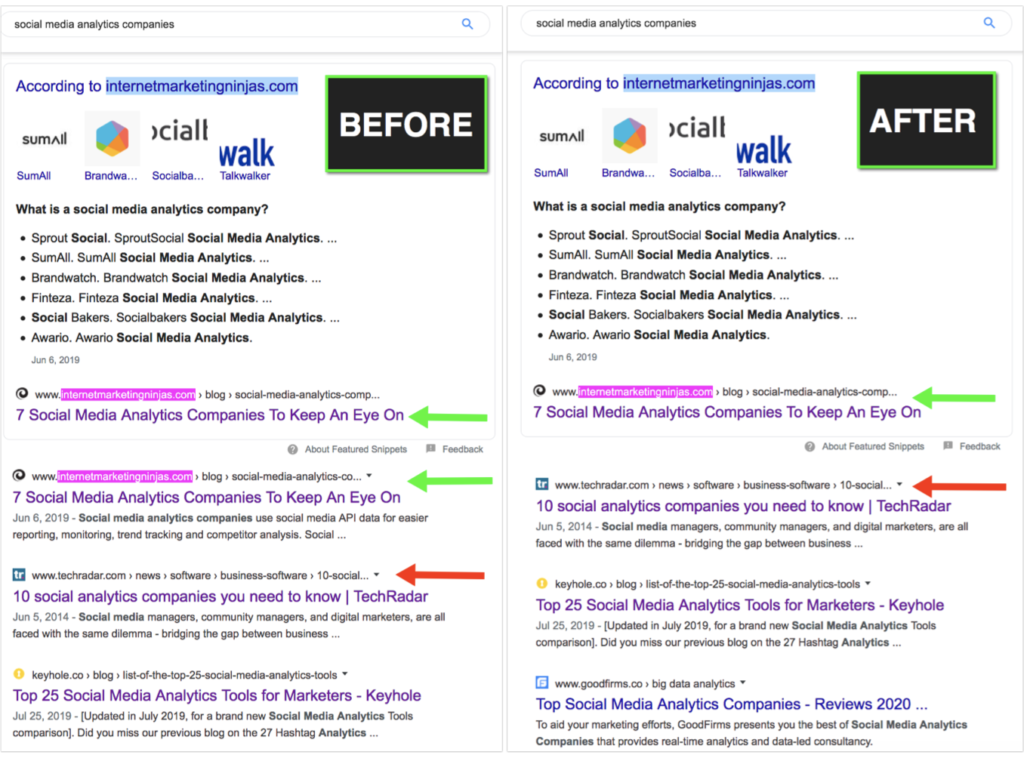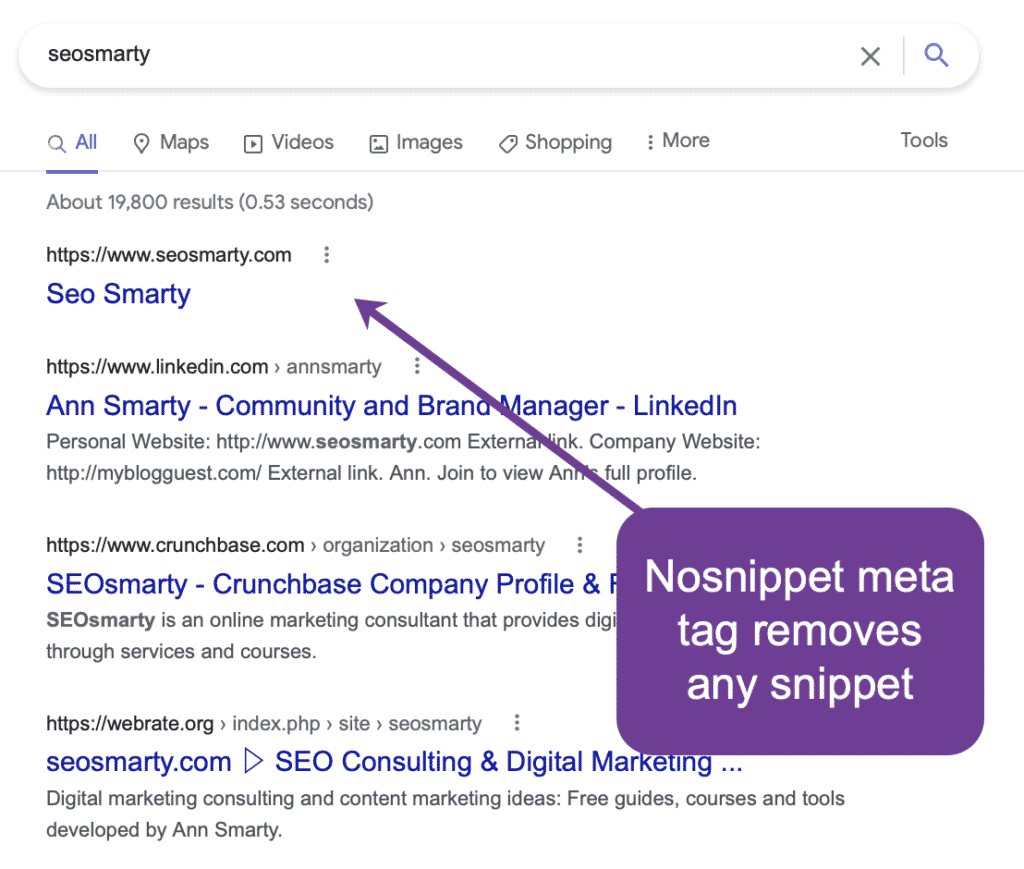De-duplication refers to Google’s practice of removing an organic result if the same page appears in other sections of SERPs, like featured snippets and top stories.
De-duplication started with featured snippets when Google decided it was a bad user experience for their searchers to see the same page twice per a single search engine result page.
More recently Google implemented the same practice for their “Top stories” section. From now on, if your page appears in the Top Stories, it would lose its first-page organic position.
Jim Boykin, CEO of Internet Marketing Ninjas, and Ann Smarty, IMN’s analyst, get together to explain de-duplication and why it is not good news for SEO
De-duplication wasn’t met with enthusiasm in the publishing community for obvious reasons: We don’t know how many people would click on the links within those extra sections of search. By default, organic results are those that most people are likely to be searching and clicking.
The featured snippet, for example, traditionally serves as “quick answer” to a query. In many cases, it removed the need to click. In other cases, featured snippets are designed the way it is not easy to find where to click to get to the page.
There is no control over this
So far website owners don’t have any control over Google’s de-duplication. There’s no way to opt out and tell Google not to remove your page from organic position and put it in other extra sections of SERPs.
Google suggested using nosnippet meta tag to instruct Google you don’t want them to put your page in the featured box but that meta tag removes any snippets, including organic snippets, so that’s not a solution at all.
So far we can wait and hope Google will once give website owners a way to opt out of those newer sections of search engine result pages. As of now, we can just keep an eye on our click-through and diagnose whether the deduplication could have had an impact on any our organic traffic.
Hire us and we will keep an eye for you!





